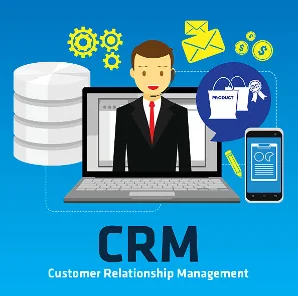
Customer Relationship Management (CRM) software plays a crucial role in modern businesses, helping organizations streamline customer interactions, manage data efficiently, and enhance sales. However, with the increasing risk of cyber threats, selecting a secure CRM is essential to protect sensitive business and customer information. In this article, we compare the most secure CRMs available, highlighting their security features, compliance certifications, and overall performance to help you determine which one is best for your business.
Why Security Matters in a CRM
Security is a critical factor when choosing a CRM, as these platforms store vast amounts of customer and business data. A breach in security can lead to financial losses, reputational damage, and regulatory penalties. The best CRMs incorporate advanced security measures such as encryption, multi-factor authentication (MFA), role-based access controls, and compliance with industry regulations.
Top Secure CRMs on the Market
1. Salesforce CRM
Security Features:
- Data Encryption: Salesforce encrypts data at rest and in transit, ensuring protection against unauthorized access.
- Multi-Factor Authentication (MFA): Provides an extra layer of security by requiring multiple authentication factors.
- Role-Based Access Control (RBAC): Users are granted access based on their roles, limiting data exposure.
- Compliance: Meets industry standards, including GDPR, HIPAA, and SOC 2.
Best For:
Large enterprises that require high scalability, security, and extensive customization options.
2. Microsoft Dynamics 365
Security Features:
- Microsoft Azure Security: Leverages Azure’s advanced security framework for real-time threat detection.
- Advanced AI-driven Threat Protection: Identifies and mitigates security risks.
- Data Loss Prevention (DLP): Prevents unauthorized sharing of sensitive information.
- Compliance: Adheres to GDPR, ISO 27001, and other major security regulations.
Best For:
Businesses that already use Microsoft products and need seamless integration with Office 365 and Azure services.
3. HubSpot CRM
Security Features:
- SSL Encryption: Secures data communication between clients and servers.
- Granular User Permissions: Provides control over user access and data handling.
- Regular Security Audits: Ensures that potential vulnerabilities are addressed proactively.
- Compliance: Follows GDPR and SOC 2 regulations.
Best For:
Small to mid-sized businesses looking for a user-friendly and cost-effective CRM with essential security features.
4. Zoho CRM
Security Features:
- End-to-End Encryption: Protects data during transmission and storage.
- IP Restrictions: Allows businesses to restrict access based on location.
- Two-Factor Authentication (2FA): Adds an extra layer of security.
- Compliance: Certified for GDPR, ISO 27001, and SOC 2.
Best For:
Startups and SMBs that need a budget-friendly CRM with strong security and customization capabilities.
5. Pipedrive
Security Features:
- Data Encryption: Encrypts sensitive information for secure storage.
- Activity Monitoring: Tracks suspicious logins and unauthorized access.
- Backup and Disaster Recovery: Ensures data integrity even in the event of cyberattacks.
- Compliance: Meets GDPR and ISO 27001 standards.
Best For:
Sales-driven organizations that prioritize a simple interface with strong security protections.
6. SAP CRM
Security Features:
- SAP Enterprise Security: Provides top-tier cybersecurity measures for large-scale businesses.
- Identity and Access Management (IAM): Ensures only authorized users access sensitive data.
- Regular Security Updates: Protects against emerging cyber threats.
- Compliance: Supports GDPR, HIPAA, and other industry regulations.
Best For:
Enterprises with complex security needs that require robust customization and compliance options.
Key Security Considerations When Choosing a CRM
1. Compliance with Industry Regulations
Ensure the CRM complies with industry-specific regulations such as GDPR, HIPAA, SOC 2, and ISO 27001. Compliance guarantees that the platform follows best practices for data protection.
2. Encryption Standards
A secure CRM should offer end-to-end encryption to protect sensitive data from cyber threats. Encryption ensures that even if data is intercepted, it remains unreadable to unauthorized parties.
3. User Authentication and Access Control
Multi-factor authentication (MFA) and role-based access controls (RBAC) add an additional layer of security by ensuring that only authorized users can access critical business information.
4. Data Backup and Recovery
Regular backups and disaster recovery solutions ensure that your business data remains intact in case of system failures or cyberattacks.
5. AI-Driven Threat Detection
Some CRMs, like Microsoft Dynamics 365, integrate AI-powered security tools to detect and prevent suspicious activities in real time.
Which Secure CRM is Right for You?
For Large Enterprises:
- Best Choice: Salesforce CRM or SAP CRM
- Why? Advanced security features, high scalability, and compliance with global regulations.
For Small to Mid-Sized Businesses:
- Best Choice: HubSpot CRM or Zoho CRM
- Why? Affordable pricing, ease of use, and essential security protections.
For Sales-Driven Teams:
- Best Choice: Pipedrive
- Why? Streamlined interface with strong security for sales teams.
For Businesses Using Microsoft Products:
- Best Choice: Microsoft Dynamics 365
- Why? Seamless integration with Office 365 and Azure security tools.
Conclusion
Security is a top priority when selecting a CRM, as data breaches and cyber threats continue to rise. The best CRM for your business depends on your specific security needs, budget, and operational requirements. Salesforce and SAP CRM are ideal for large enterprises needing top-tier security, while HubSpot and Zoho CRM cater to smaller businesses looking for cost-effective solutions. Microsoft Dynamics 365 offers excellent security for companies already using Microsoft products, and Pipedrive is a great choice for sales-focused teams. By evaluating security features, compliance, and encryption standards, you can select a CRM that safeguards your business data while optimizing efficiency.
Written by Domingo Hernández